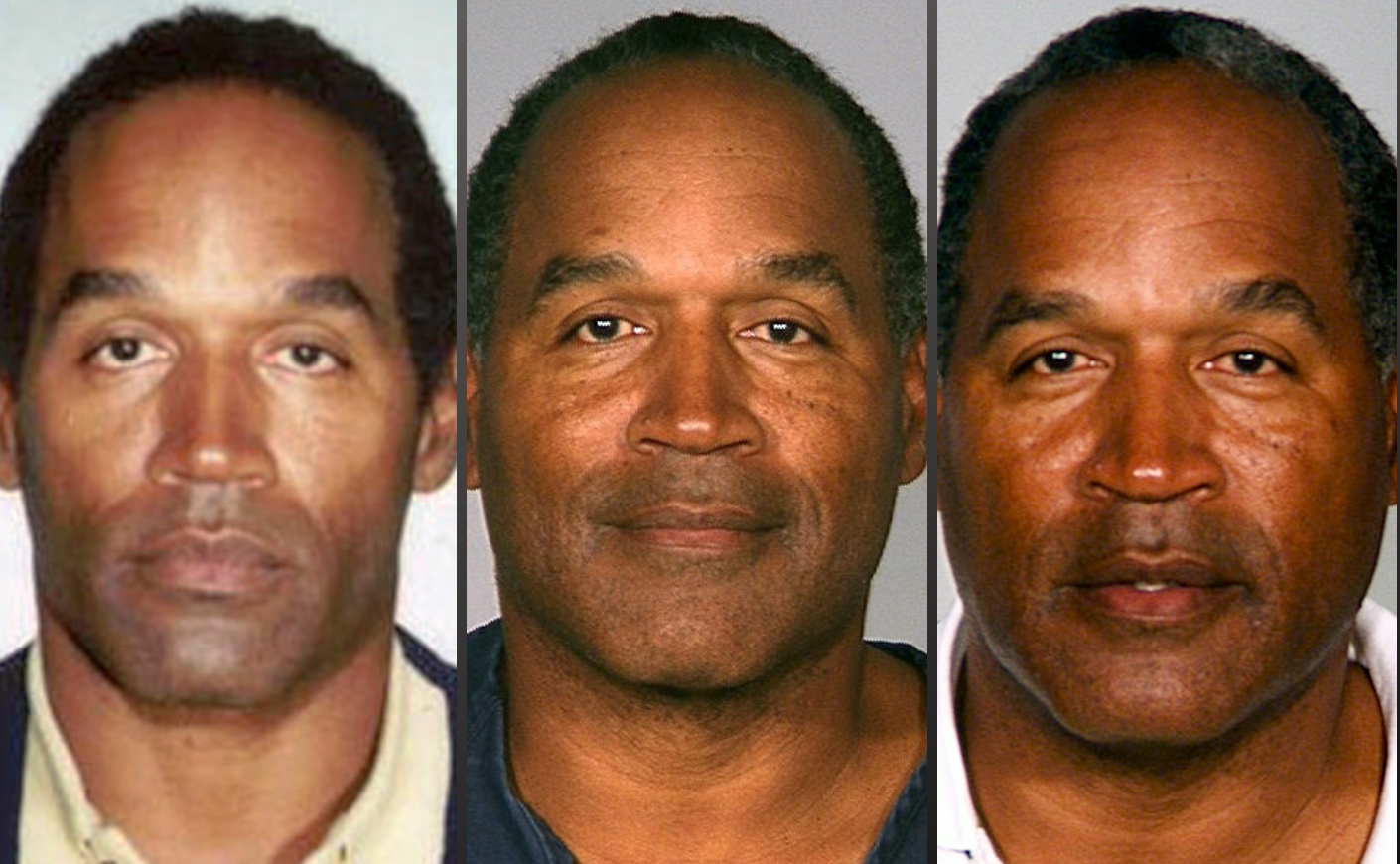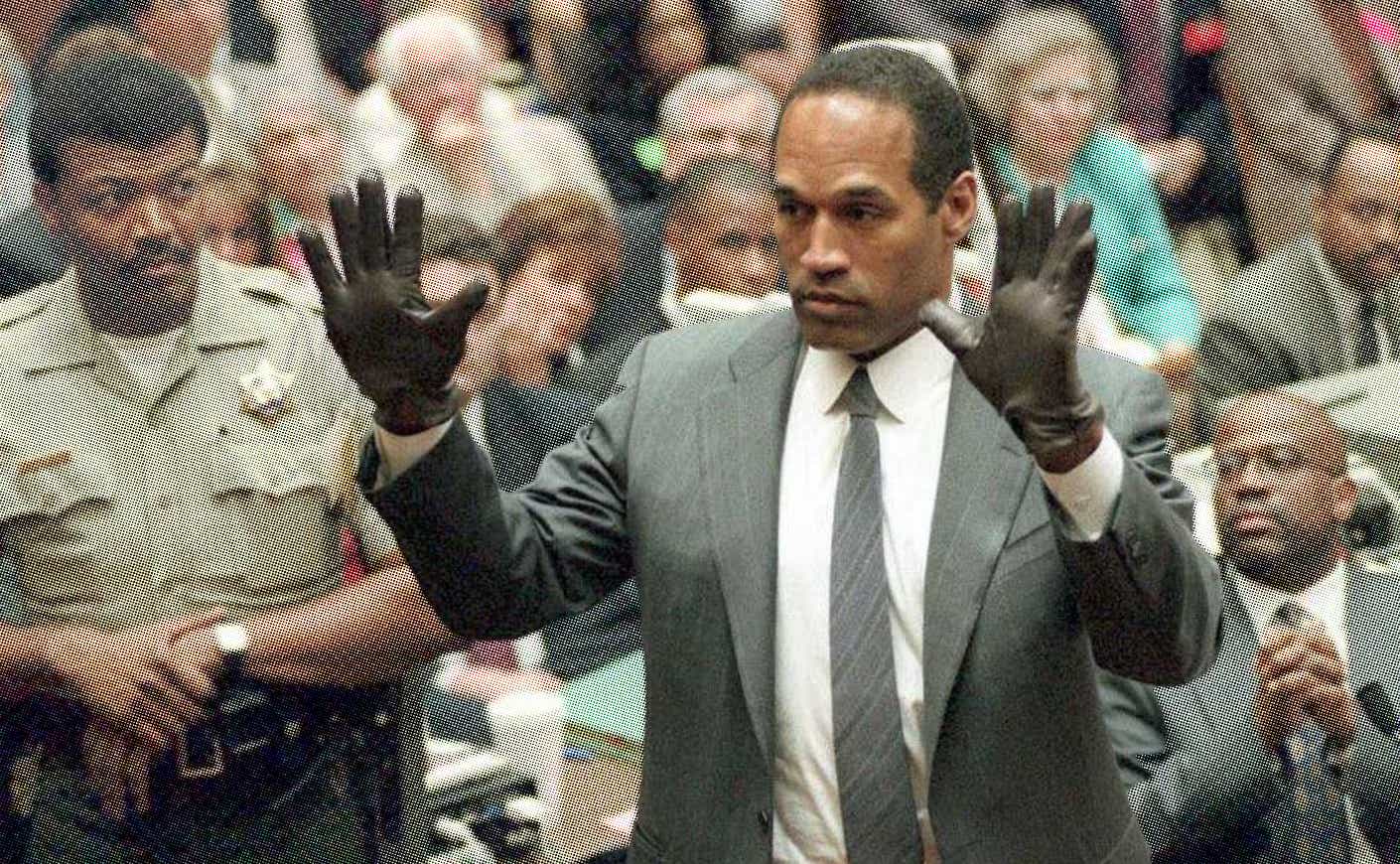I had heard not too long ago that O.J. Simpson was in bad health — people mentioned cancer. When John leaned over on our flight from LA to NYC and told me that O.J. had died, part of my life flashed before my eyes. I immediately wondered how Nicole Brown Simpson’s and Ron Goldman’s families reacted. And I thought back to the mid-1990s, when I had a front-row seat to the story that defined that decade: the grisly and shocking murders, the bizarre two-hour Bronco chase across LA that I watched at a basketball game, along with Bob Costas and 96 million other people. With a gun to his head, the formerly beloved Heisman trophy winner/football star/sports commentator/pitchman/actor called 911 saying all he wanted was to be with Nicole. That he “loved her too much.” It was, as they say, stranger than fiction.
All signs pointed to O.J.’s guilt: The bloody glove found at the scene, the cut on his finger. Later, tons of evidence that he was prone to fits of rage and had physically abused Nicole on several occasions. Yet his “dream team” of defense attorneys, including the purple suit-wearing, smooth-as-silk Johnnie Cochran — who I got to know very well — raised serious doubts about his guilt: the discovery that Detective Mark Fuhrman had made racist comments, overall sloppy police work, contaminated DNA samples, and O.J.’s inability to put on the famous glove (immortalizing Johnnie’s words, “If it doesn’t fit, you must acquit…”) The prosecution was, simply put, out-lawyered. O.J. Simpson would go free.

I was pregnant with Carrie and in a navy maternity dress, waiting in the hallway outside the infamous courtroom, when the verdict came down. As soon as it echoed through the hallway, I saw O.J.’s daughter Arnelle and son Jason embrace, relieved and jubilant. I looked across at Maria Shriver, who was also there covering the story. She looked ashen. And of course, the reaction in that hallway was repeated in cities across the country. White America, stunned and shaken. Black America, ebullient and cheering. There it was, the racial divide, in black and white.
Twenty years later I watched O.J.: Made in America and gained a greater appreciation of what the football great symbolized to the Black community. (I highly recommend you watch it if you haven’t.) Still, I couldn’t help but be outraged that O.J. Simpson got away with murder.
RELATED: What Are Celebrities Saying About O.J. Simpson’s Death?
He moved to Miami, and according to the New York Times, played golf, gave autographs at the mall, and raised the two children he fathered with Nicole. Now that Sydney and Justin are grown, I can’t help but wonder, what do they think of all this? What do they think happened to their beautiful mother?
He never paid the money owed to the Brown or Goldman families as the result of a subsequent civil suit. He did serve time — nine years of a 33-year sentence — for armed robbery after he stole sports memorabilia he believed was rightfully his.
I interviewed O.J. after he was acquitted. He had insisted that he was going to do everything he could to find the person who killed Nicole and Ron. I asked him, barely able to hide my disgust, how the search for the killer (or killers) was going. It was a tense interview, which you can watch here:
Somewhere over Lincoln, Neb., I thought about my late husband Jay, who was also in LA covering the case and providing legal commentary for MSNBC. I thought about Judge Lance Ito (who I still hear from occasionally via email). I thought about my producer Lori Beecher, and the countless hours we spent trying to book anyone associated with the case, and keep them away from the competition — primarily Barbara Walters and Diane Sawyer. It really was a three-ring circus: O.J. and his legal team, the media, and the unspeakable pain of two families whose loved ones had been taken from them in the most brutally violent way. Lest we forget, Nicole was almost decapitated.
A lot has changed since that terrible night of June 12, 1994. We’ve learned so much more about systemic racism and the horrendous treatment of Black Americans by too many police officers. I just wish the People v. O.J. Simpson hadn’t been a much-needed test case about race in America. Because O.J. won — and the people lost.








